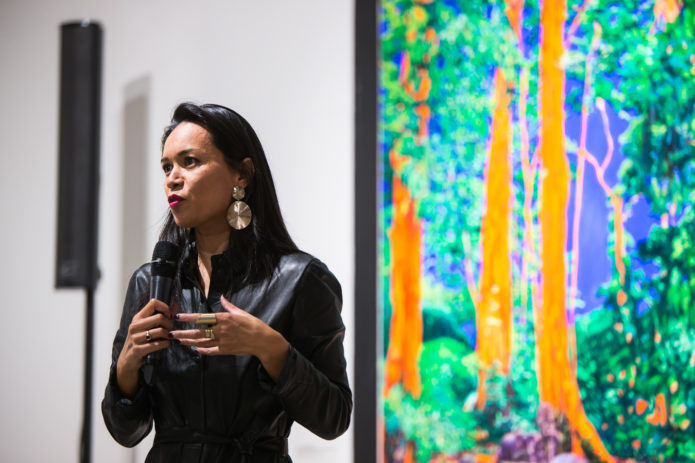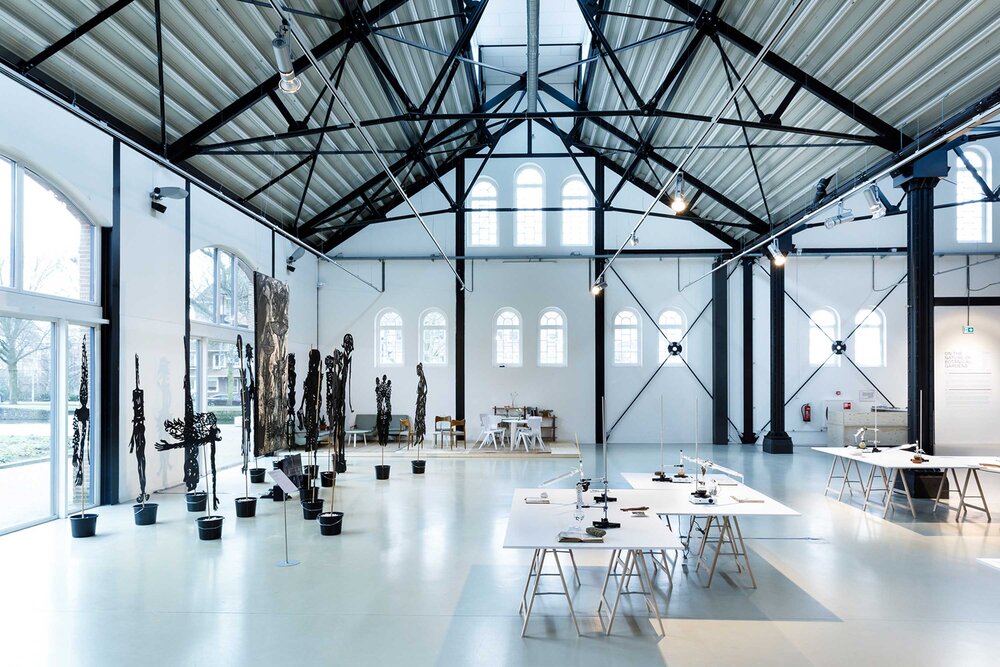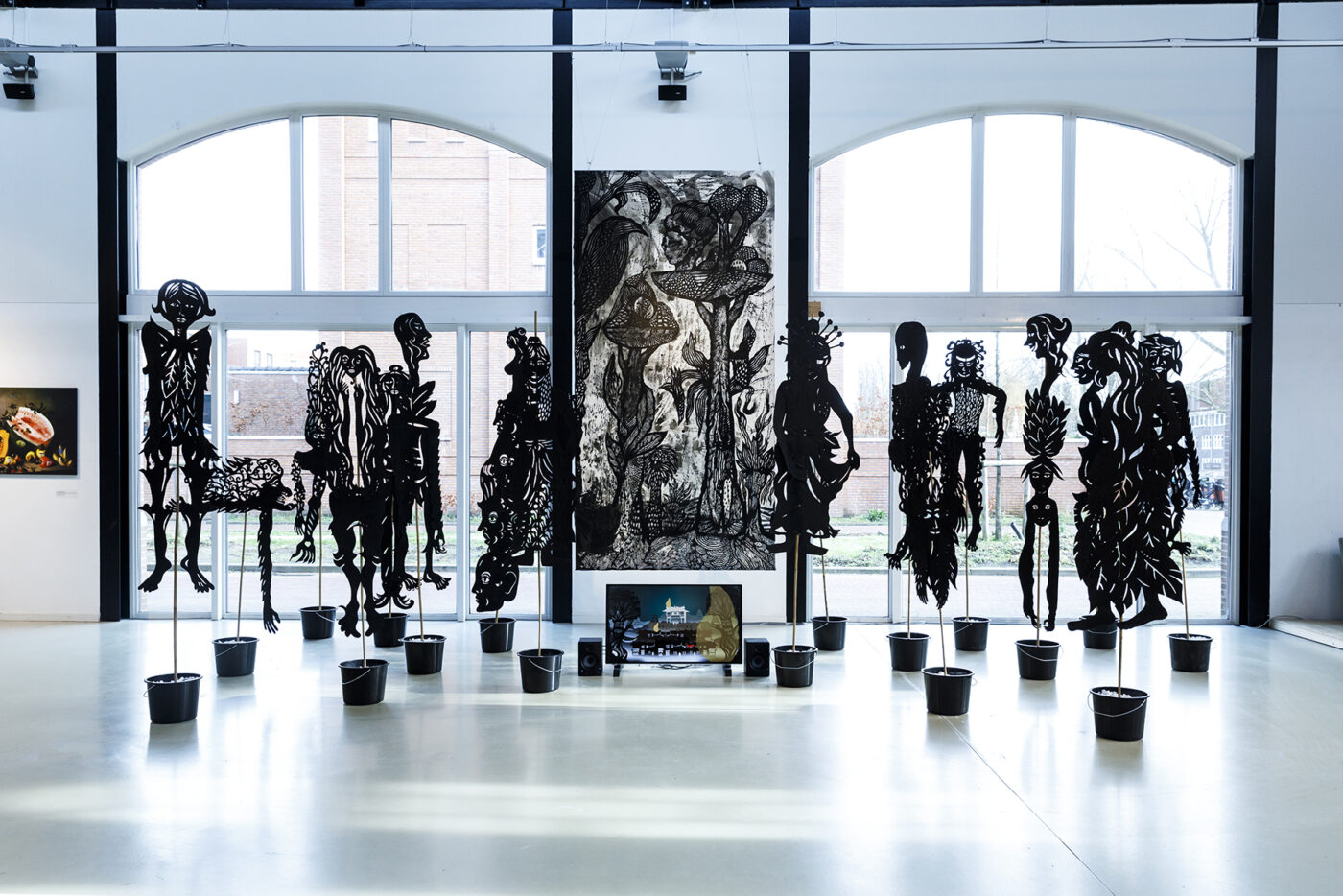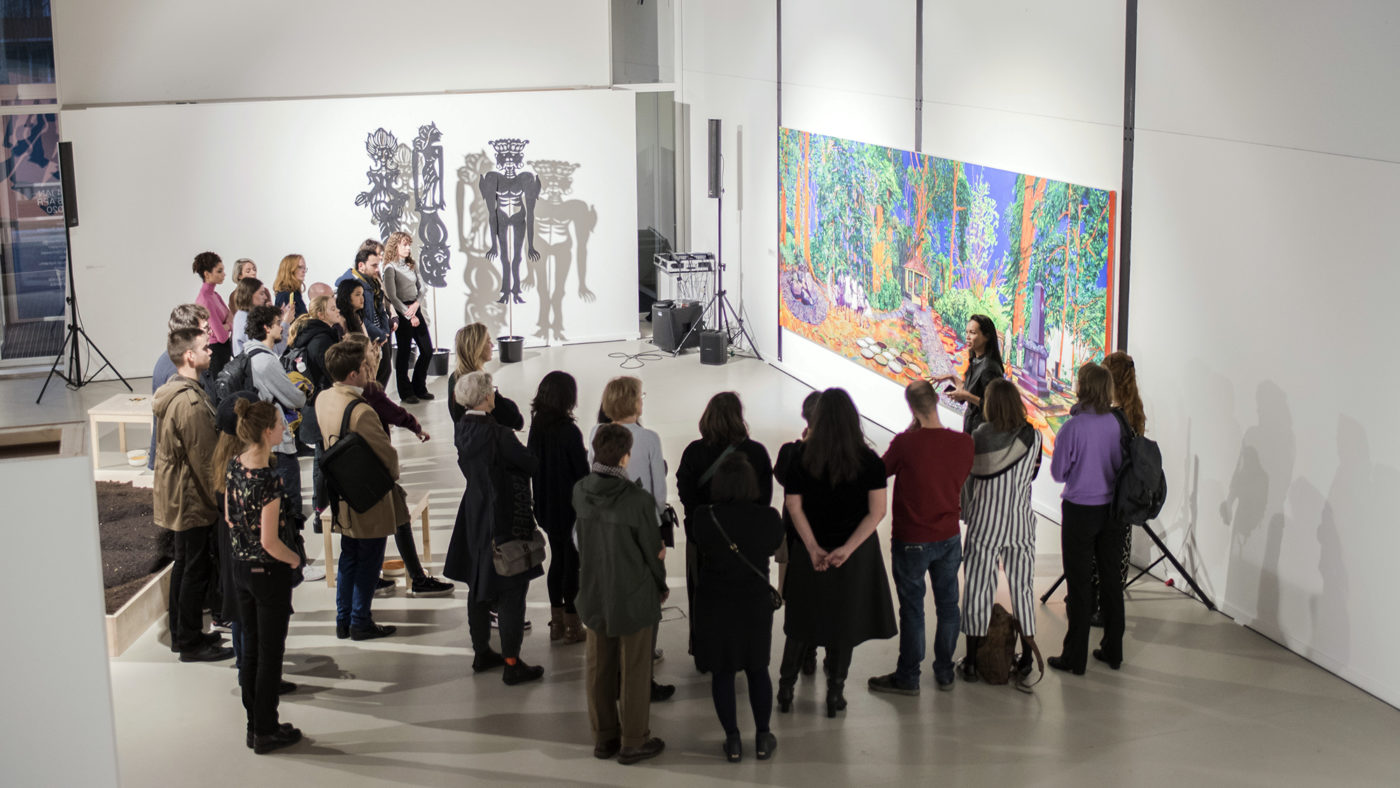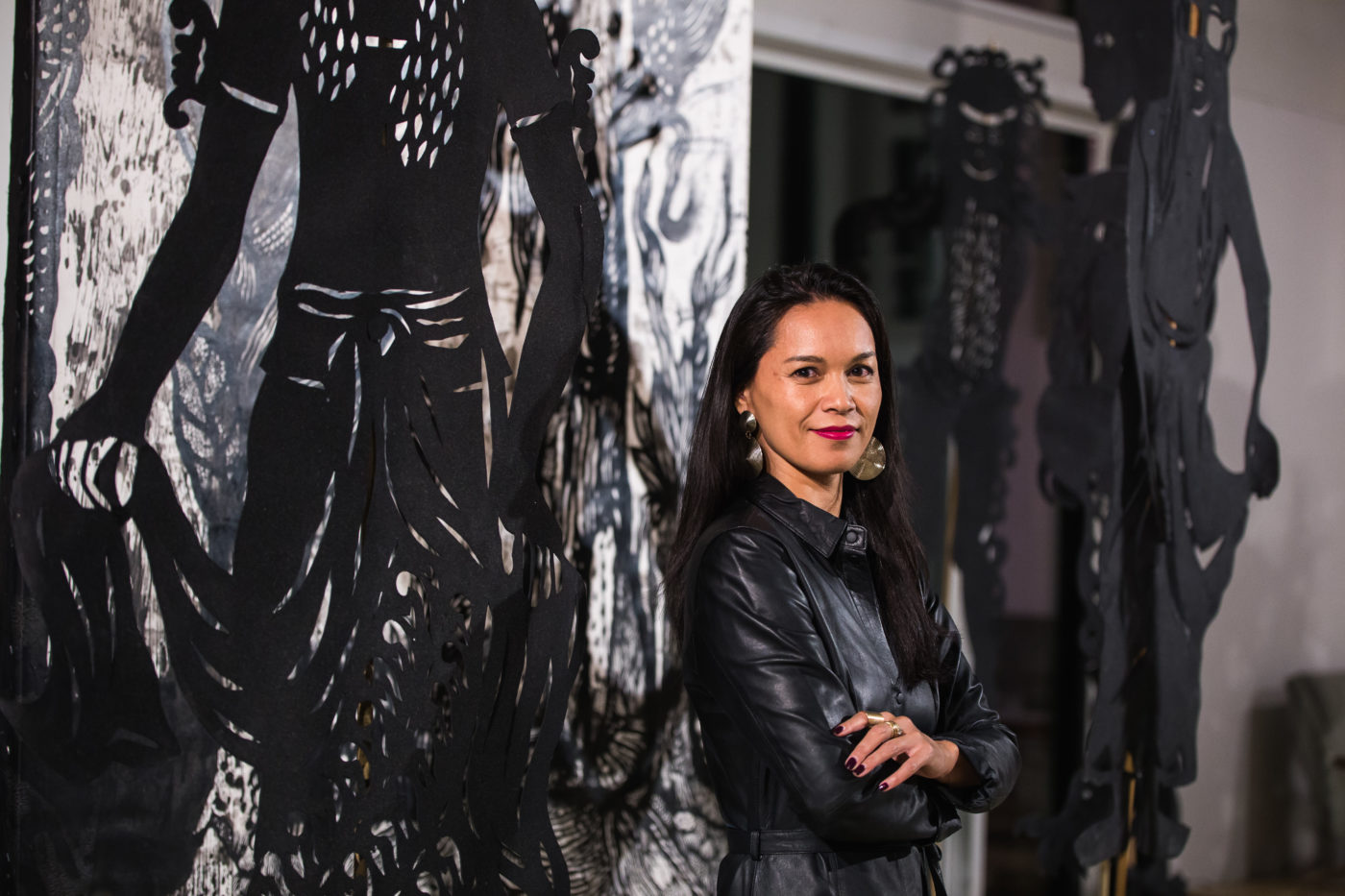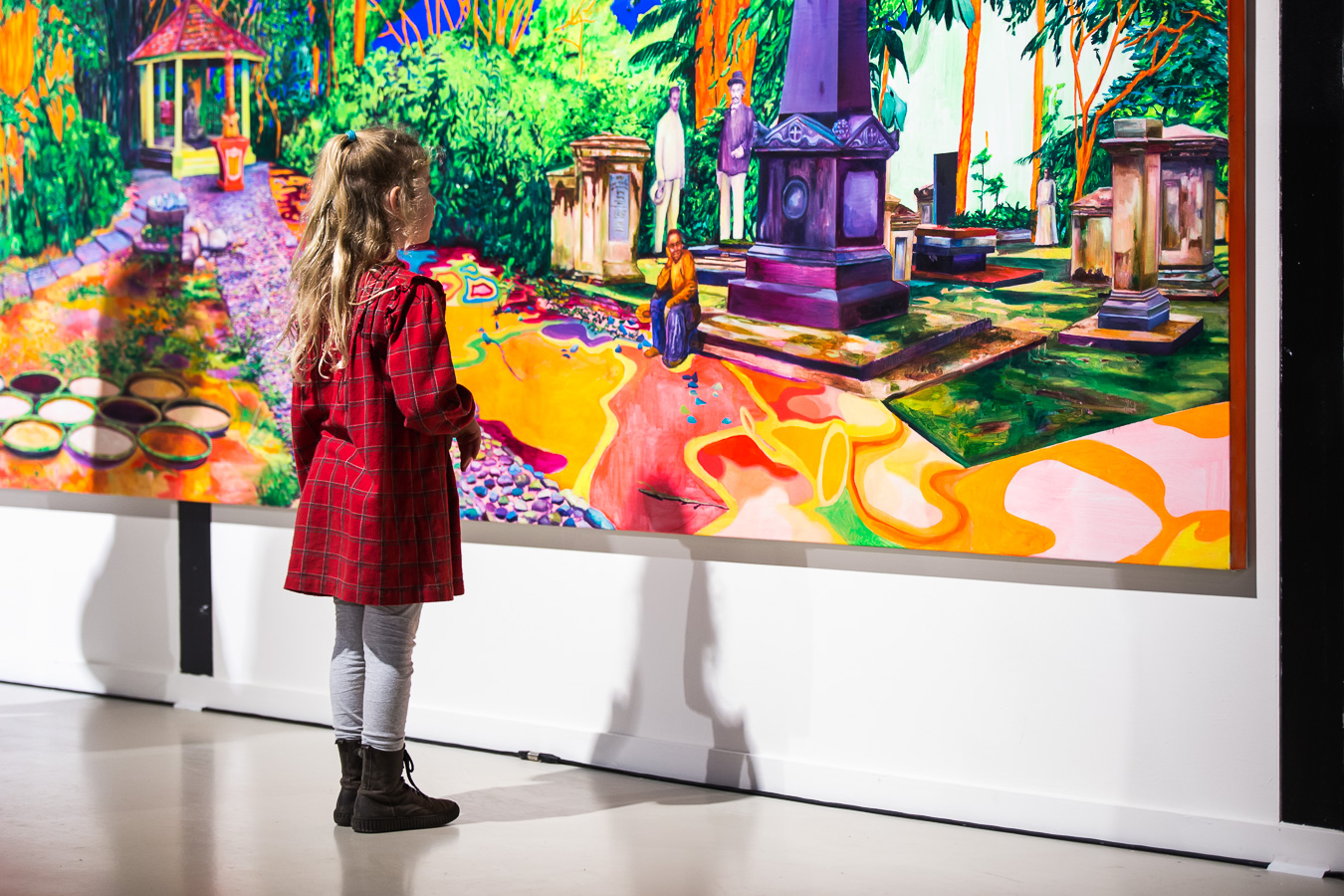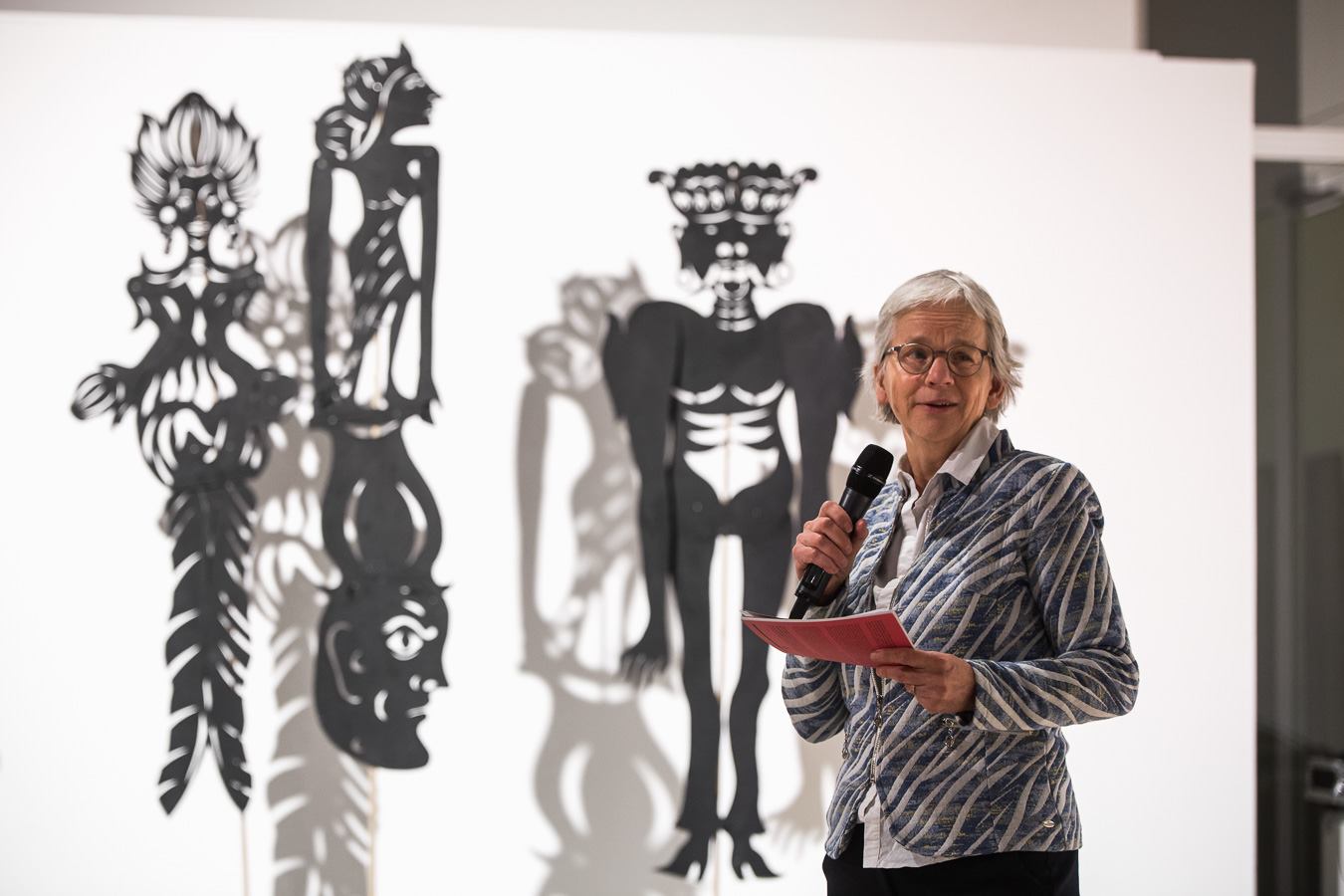Digital Archive: Decolonise Botanical Gardens
Botanical gardens exist around the world and have become associated with the quest for knowledge, idyllic landscapes and exotic nature. The exhibition On the Nature of Botanical Gardens (2020) looks at botanical gardens from another angle and regards botanical gardens as a key site in which colonial power was literally rooted. It investigates how the colonial quest of products, profits and power around the world formed the context for the establishment and consolidation of botanical gardens.
Since its foundation Framer Framed has been involved in the struggle to decolonise museum collections and presentations. Symposia such as The Colonial Gaze (2009), The Exotic Gaze (2010), Contested History (2012) and Hacking History (2012) are examples of projects that contribute to the decolonisation of the Dutch remembrance culture. In this line the exhibition On the Nature of Botanical Gardens features nine contemporary Indonesian artists who look critically at botanical gardens, colonial power, knowledge building and the economics of nature, its legacies and current consequences of approaching nature and plants. The exhibition seeks to decolonise the concept of botanical gardens and their role in building a Dutch colonial empire in Indonesia and beyond.
The idea for the exhibition On the Nature of Botanical Gardens was born in 2016 from the desire to decolonize botanical heritage. Publications such as On Decoloniality: Concepts, Analytics, Praxis (2018) by Walter D. Mignolo and Catherine E. Walsh, Plants and Empire, Colonial Bioprospecting in the Atlantic World (2004) by Londa Schiebinger and Sowing Empire, Landscape and Colonization (2004) by Jill H. Casid helped to formulate the concept and approach. Clelia Coussonnet, Jean Carlos Medina, Josien Pieterse and Cas Bool contributed to the theoretical framework for the exhibition.
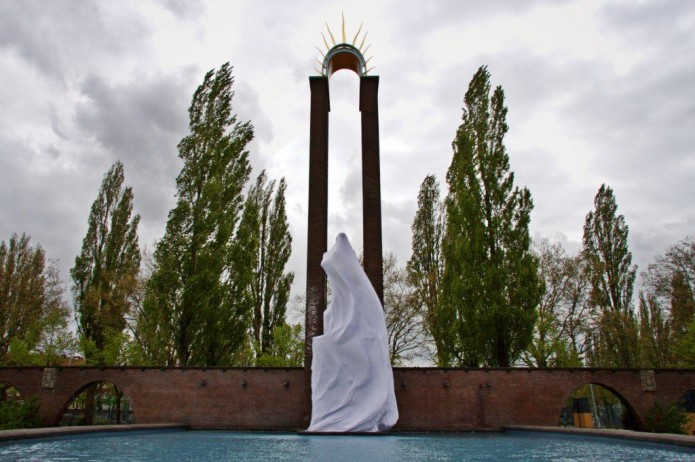
Intervention by Iratxe Jaio en Klaas van Gorkum, ‘Kepala Batu / Hoofd van steen‘ at Monument Indië-Nederland in Amsterdam. Commisioned by Framer Framed for the event Hacking History (2012). Foto: Rogier Fokke
In 2019 Sadiah Boonstra was invited to curate the exhibition On the Nature Botanical Gardens (2020). With Sadiah Boonstra, the exhibition was given an emphasis on Indonesia, and its shared history with the Netherlands. In her role as curator, Sadiah brought her own research into decolonial practices. The exhibition On the Nature of Botanical Gardens (2020), features work by nine contemporary Indonesian artists, some of whom have previously exhibited work at Framer Framed. The artists show a critical, decolonizing view of botanical gardens, their power and way of building knowledge, the economy of nature, but also of the legacies and current consequences of approaching nature and plants in this way.
Participating artists
Zico Albaiquni
Arahmaiani
Ade Darmawan
Edwin
Samuel Indratma
Lifepatch
Ipeh Nur
Elia Nurvista
Sinta Tantra
Commissioned Works
Several new works were produced especially for the exhibition by the artists Zico Albaiquni, Samuel Indratma, Lifepatch, and Sinta Tantra. In close collaboration with curator Sadiah, the artists translated aspects of their current practice to create new artworks for the exhibition.
Previously Ipeh Nur realized an in situ artwork for the exhibition Pressing Matters (2018), a group exhibition with work by 24 Indonesian artists, brought together by artist Kevin van Braak; the mural Bunga Merah about the genocide on the Moluccan Banda islands by the VOC in 1621. She developed this theme further in her work Perken (acrylic on rice bags, 470 x 240 cm, 2019), which was featured in the exhibition On the Nature of Botanical Gardens.
Samuel Indratma developed two additional works for On the Nature of Botanical Gardens as continuation of his 2018 painting Putri Penunggu Pohon. The new works, of shadow puppets and video animation, create a 3D installation within the space. The puppets represent guardians of the forest, blurring the lines between nature, humans and animals. The role of these guardians is emphasised through the animation Sintren – Save the planet (2019) which is a collaboration between Indratma and high school students in Java. Through bright and dynamic images, accompanied by lively music, the video tells a mythical story about saving the natural environment.
Artist and activist collective Lifepatch developed a two-channel video work based on their ingoing research on the traditional medicine and healing practices of the Batak. Hundreds of pustaha, books containing knowledge of these practices were taken from Sumatra during colonial rule and brought to European libraries. Lifepatch’s videos Spectacular Healing (2019) depict the ways in which these traditional methods and ways of understanding nature are still being used today. Lifepatch members Agung ‘Geger’ Firmanto and Agus ‘Timbil’ Tri Budiarto talked more about their work in the online Artist Talk.
Artist Sinta Tantra, known for her colourful and graphic murals, was commission by Framer Framed to produce new work on the theme of botanical gardens. She created the installation Kebun Raya / Kebun Saya with support from the by Mondriaan Funds. The combination of a mural, postcards and other mixed media becomes what Tantra calls an ‘assemblage’ of art and artefacts. This commission was inspired by botanical gardens in Bali and Bogor as simultaneous sites of leisure, tourism and colonial processes of exoticism and musealisation.
We are proud to announce that another commissioned work Ruwatan Tanah Air Beta, Reciting Rites in its Sites (2019) by Zico Albaiquni, has been acquired by the Museum of World Cultures (collection number 7224-1 Nationaal Museum van Wereldculturen). The work follows the historical Dutch traces in the Botanical Garden in Bogor and shows the contemporary appropriation of this area by public groups. In addition, the work reflects on the way in which this history was represented in a previous Framer Framed exhibitions basic values (2016) with works by herman de vries. As a commission by Framer Framed, the painting was partially supported by the Mondriaan Fund.

Zico Albaiquni, Ruwatan Tanah Air Beta, Reciting Rites in its Sites (2019), oil and synthetic polymer on canvas, 600 x 200 cm. Commissioned by Framer Framed, supported by Dutch Culture / Shared Heritage. Image courtesy of Framer Framed. Photograph by Eva Broekema
Exhibition Catalogue
You can read the exhibition catalogue, freely available online to download in English and Dutch, for more information about the exhibition, the participating artists, and their works.
Virtual Tour
Experience a personal and exclusive tour from the curator of On the Nature Botanical Gardens, Sadiah Boonstra available in both a Dutch and English version. With the tour is it now possible to see more of the artworks, and learn about their role within the exhibition, and in dialogue with each other. For the Dutch Virtual Tour on our YouTube channel, click here.
Interviews
For the curator, one of the aims of the exhibition was to provide an insight into knowledge systems of nature that existed before the advance of colonialism in Indonesia, knowledge that was ignored, dismissed or destroyed by colonial botanists. Hear more about this decolonial curatorial practice of the exhibition in an interview with, Sadiah Boonstra.
Framer Framed aims to shift from a more traditional categorised view to a layered and deeper perspective on botanical gardens, connecting it with contemporary art in Indonesia. In lieu of Framer Framed’s usual public program and Artists Talks, we interviewed some of the artists personally to discover their inspirations, experiences and processes.
Learn about the artists themselves and get closer to the artwork Ruwatan Tanah Air Beta, Reciting Rites in its Sites (2019) through a visit to Zico Albaiquni’s studio.
Hear more about her ten year research with Tibetan monks directly from the source in our interview with artist and environmentalist Arahmaiani.
Report on a panel discussion
Or, take a retrospective view of the exhibition with the report which recounts the public program Memoria Plantae: Perspectives on the Dutch Botanical Network with, among others, curator Sadiah Boonstra and scholar Andreas Weber from December 2019.

Exhibition Co-ordinator, Jean Medina, Memoria Plantae: Perspectives on the Dutch Botanical Network at Framer Framed on 10th December 2019. Photo: Betul Ellialtioglu / Framer Framed
Artist Talk
Artist talk with participating artists Arahmaiani, Lifepatch, Zico Albaiquni, and curator Sadiah Boonstra, to discuss their work and vision on topics of identity, colonial and botanical history, indigenous knowledge and the use and exploitation of nature in Indonesia.
Education Program
Framer Framed is also offering an educational program in Dutch for primary and middle school children that can be done at home or with their school. The online material of Bekijk het maar! isn’t just for learning, but can facilitate children’s own research and creativity through video clips and worksheets. Get to know the artworks in a fun and interactive way! Contact our educational department if you are interested to participate.
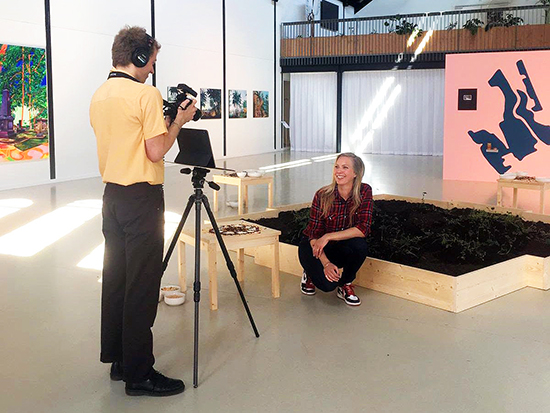
Arahmaiani, Memory of Nature (2013-2019) Exhibition: On the Nature of Botanical Gardens. Foto: Annosh Urbanke
Follow up
Inspired by the exhibition’s connection between a critical analysis of museums and the study of botanical gardens, Evie Evans Master’s thesis Cultivating Colonialism analyses botanical gardens from a museological perspective. Because museums and botanical gardens have shown us ways of organising, categorising and defining an unknown world from colonial times to the present, plants in botanical gardens are subject to similar processes of musealisation and decolonial critique as objects within a museum. By considering both plants and the greenhouses of European botanical gardens as forms of “imperial debris”, this thesis explores how the colonial history of de Hortus, Amsterdam and the Royal Botanic Gardens, Kew, inform their contemporary methods of display and the narratives which are communicated to visitors.
The Open University organised a webinar on 8 October 2020. Who are the botanical gardens of? The webinar consisted of contributions from Sadiah Boonstra and Andreas Weber, who previously contribute to programs around the exhibition. Tinde van Andel also gave a presentation, she is professor by special appointment in the History of Botany and Gardens on behalf of the Clusius Foundation.
Results of the webinar can be found here, with a focus on the special issue of Studium. Journal of Science and University History, ‘Laborious Transformations: Plants and Politics at Bogor Botanical Gardens’ (Vol. 11, No. 3, 2018), with an introduction and article by Andreas Weber.
In December 2020, Sadiah and Zico discussed the exhibition in the webinar, Decolonizing Botanical Gardens and Knowledge of Nature in Museums and Art. The webinar was organised by Wacana, the Journal of the Humanities of Indonesia and Paradigm, the Journal of Cultural Studies, and the University of Indonesia. It is available to watch on YouTube in Indonesian.
On May 12 2021, the discussion around decolonising our understanding of nature, which sparked the Framer Framed exhibition On the Nature of Botanical Gardens, continues! Curated by Sadiah Boonstra, the 2020 exhibition featured nine contemporary Indonesian artists who looked critically at botanical gardens, colonial power, knowledge building and the economics of nature, its legacies and current consequences of approaching nature and plants. The exhibition aimed to decolonise the concept of botanical gardens and their role in building a Dutch colonial empire in Indonesia.
Now the ICOMOS Nederland Lecture Committee presents an evening on Botanical gardens and collections: Colonial implications and contemporary approaches. Evie Evans will give a presentation about how Framer Framed’s exhibition offered an alternative way to decolonise botanical gardens with contemporary art. The exhibition also inspired her master’s thesis of a museological analysis of botanical gardens and their (in)visible colonial narratives.
Further Reading
Tinde van Andel, Open the treasury and decolonize the museum, Leiden University, 6 January 2017, inaugural lecture
Zaheer Baber, “The Plants of Empire: Botanic Gardens, Colonial Power and Botanical Knowledge”, Journal of Contemporary Asia, 2016
Lucile H. Brockway, Science and Colonial Expansion: The Role of the British Royal Botanic Gardens, Yale University Press, 2002
Sadia Boonstra, “Interview with Curator Sadiah Boonstra”, Interview by Evie Evans, Framer Framed, April 2020. https://vimeo.com/405785189
Sadia Boonstra, On the (de)coloniality of Kebun Raya Bogor, museum objects and contemporary Indonesian art, 2022
Jill H. Casid, Sowing Empire, Landscape and Colonization, 2004
Evie Evans, Master’s thesis Cultivating Colonialism, 2021
Framer Framed, On the Nature of Botanical Gardens, exhibition catalogue, 2020
Ros Gray & Shela Sheikh, The Coloniality of Planting, podcast, Camden Art Centre, London, 2020
Felicity Jensz, Kolonialbotanik: Networks of collecting practices in colonial Germany, January 22, 2022
The Botanical Revolution (2021-2022), exhibition at Central Museum, Utrecht, the Netherlands
ICOMOS Online dossier on ‘The Coloniality of Natural History Collections‘ with an article by Sadia Boonstra and among other the lecture on Botanical gardens: Colonial implications & contemporary approaches featuring Sofia Lovegrove Pereira and Evie Evans from Framer Framed
The Colonial Gaze, symposium on the influence of the colonial past on museum policy and museum presentations, 13 December 2009
Walter D. Mignolo en Catherine E. Walsh, On Decoloniality: Concepts, Analytics, Praxis, Durham en Londen, 2018
Londa Schiebinger, Plants and Empire, Colonial Bioprospecting in the Atlantic World, 2004
Londa Schiebinger and Claudia Swan, Colonial Botany: Science, Commerce and Politics in the early Modern World, University of Pennsylvania Press, 2005
Ann Laura Stoler, Duress: Imperial Durabilities in our Times, Duke University Press, 2016
Andreas Weber en Robert-Jan Wille, ‘Laborious Transformations: Plants and Politics at the Bogor Botanical Gardens’, Studium. Tijdschrift voor Wetenschaps- en Universiteitsgeschiedenis 11.3, 2018
Sofia Lovegrove, Displaying Violence and the Violence of Display: Durable Modern/Colonial Worldviews and the Production of Alterity in a Botanical Garden in Lisbon, Portugal, in: Journal of Historical Studies, Bd. 34, Nr 1, (2023), Dispaying Violence
- The Architectural Review - The coloniality of planting
- Over de de/kolonialiteit van Kebun Raya Bogor - door Sadiah Boonstra
- Noema Magazine - The Long Shadow Of Colonial Science
- Studium - Laborious Transformations: Plants and Politics at Bogor Botanical Gardens - Volume 11
- Metropolis M - On the Nature of Botanical Gardens
- Art and Market - On the Nature of Botanical Gardens' at Framer Framed
- Het Parool - On the Nature of Botanical Gardens: de koloniale blik als inspiratie
Links
- Thesis: Evie Evans - Cultivating Colonialism (2021)
- Tine van Andel, Open de Schatkamer en dekoloniseer het museum (2017)
- Catalogus: On the Nature of Botanical Gardens – NL
Attachments
Ecology / Shared Heritage / Indonesia / Colonial history /
Exhibitions
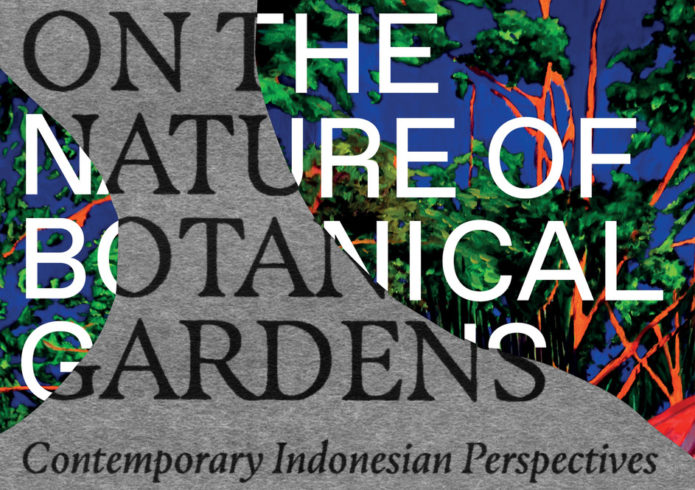
Exhibition: On the Nature of Botanical Gardens
Contemporary indonesian perspectives by nine Indonesian artists
Agenda
Artist Talk: On the Nature of Botanical Gardens
With the participation of: Zico Albaquni, Arahmaiani, Lifepatch members Agung ‘Geger’ Firmanto and Agus 'Timbil' Tri Budiarto, along with the curator Sadiah Boonstra.
Finissage: On the Nature of Botanical Gardens
Featuring a performative lecture investigating the etymology of plant species by artists Amy Pekal and Marit Mihklepp
Re-visiting Botanical Gardens
Nieuwe perspectieven op het netwerk van Nederlandse botanische tuinen
Opening: On the Nature of Botanical Gardens
Contemporary Indonesian Perspectives
Memoria Plantae: Perspectives on the Dutch Botanical Network
A conversation with Sadiah Boonstra, Andreas Weber en Jennifer Tosch in the lead-up to our upcoming exhibition
Network
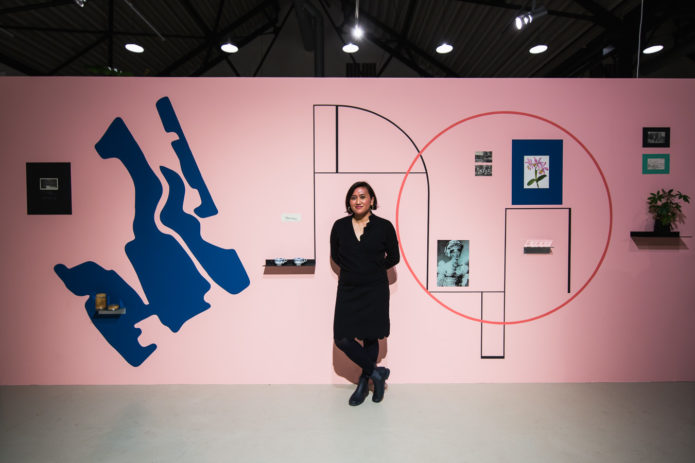
Sinta Tantra
Artist

Edwin
Artist

Samuel Indratma
Artist
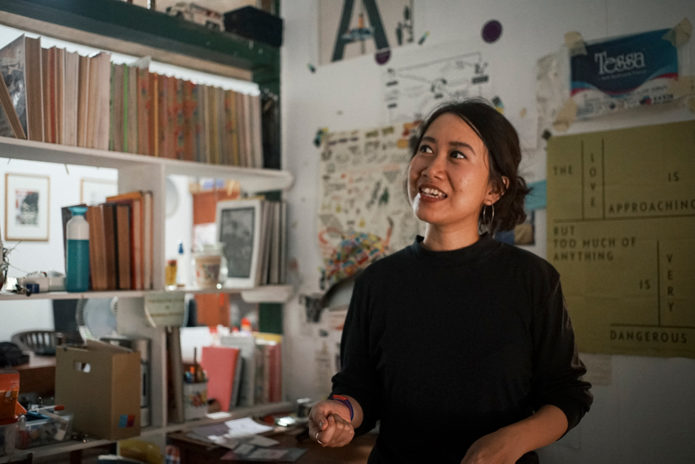
Elia Nurvista
Artist
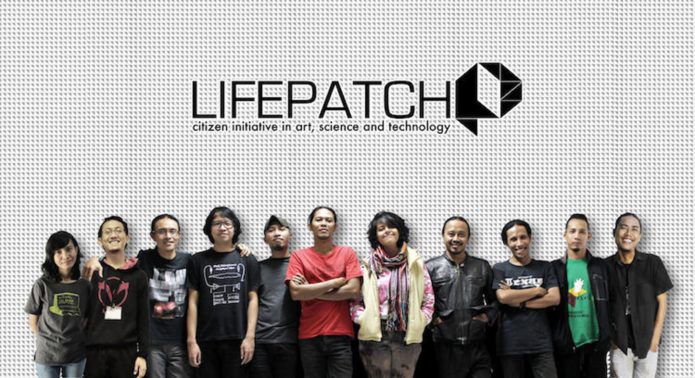
Lifepatch
Artist collective
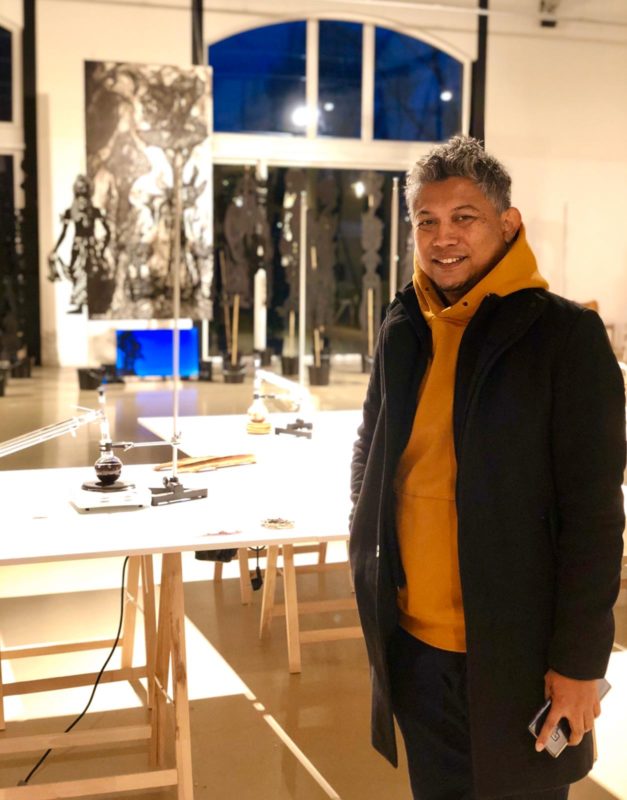
Ade Darmawan
Artist
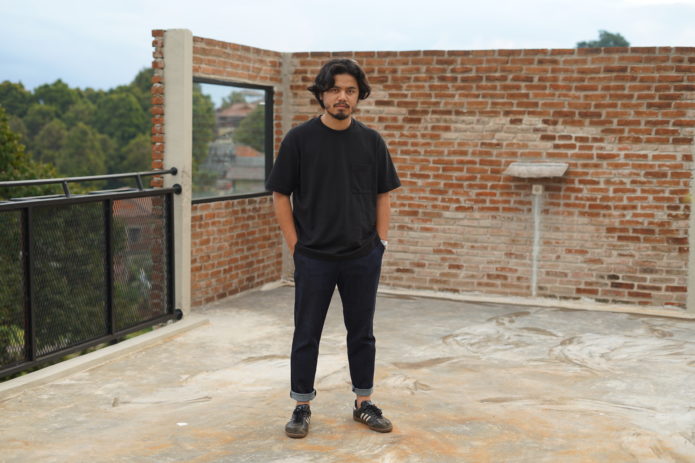
Zico Albaiquni
Artist
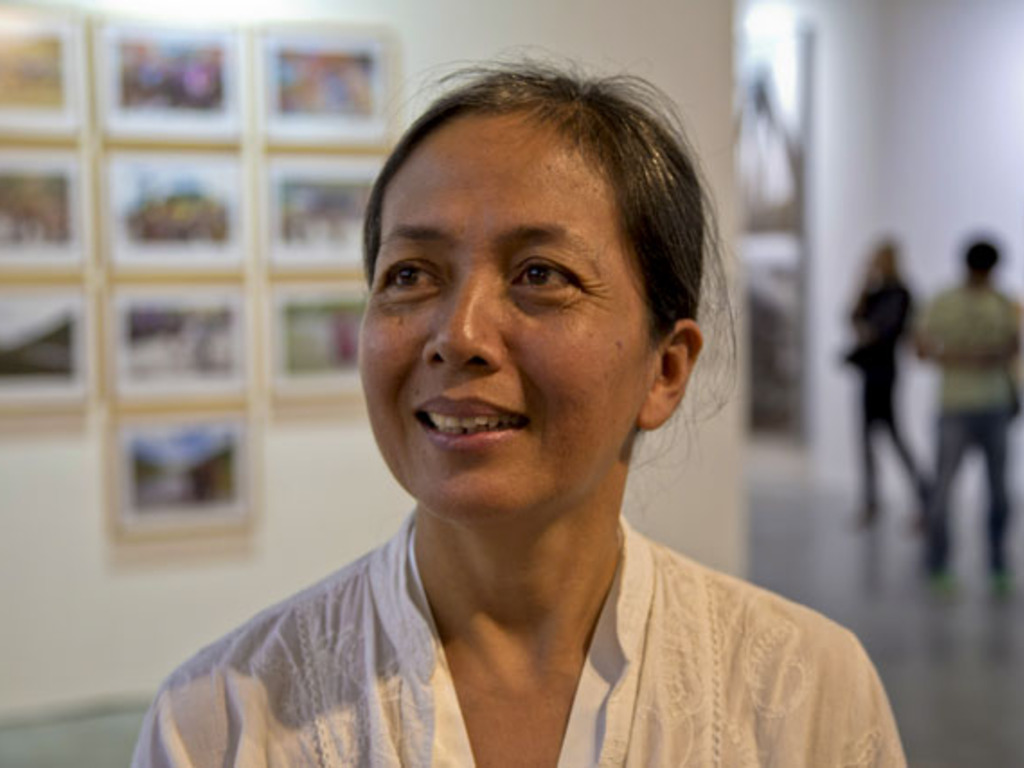
Arahmaiani
Artist

Andreas Weber
Academic
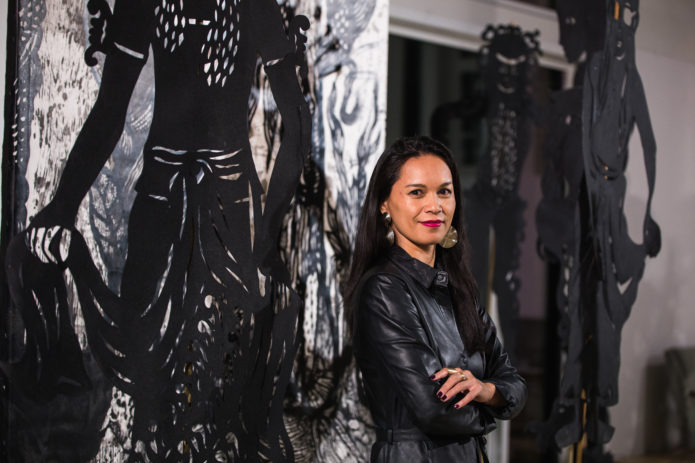
Sadiah Boonstra
Curator
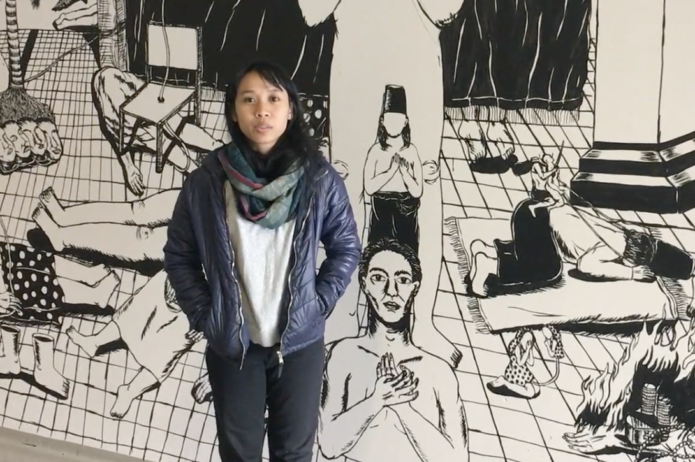
Ipeh Nur
Artist
Magazine


Report: On the Future of Botanical Gardens

Review: 'On the Nature of Botanical Gardens' at Framer Framed

Video: Interview with Zico Albaiquni

Video: Interview with Sadiah Boonstra
